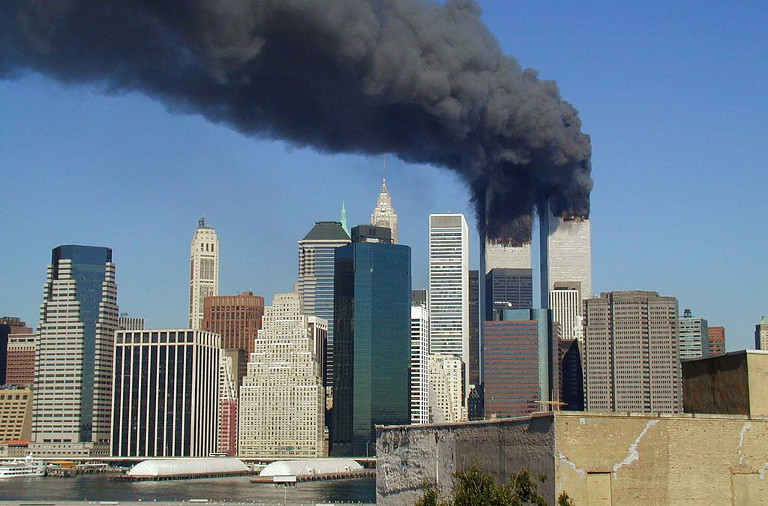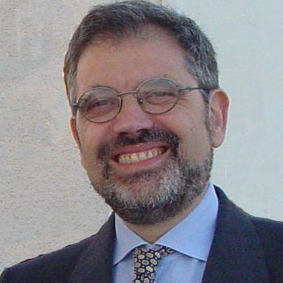The 9/11 attacks of 2001 are classic examples of “catalytic events” that change the course of history. They can be seen as triggers for “Seneca Collapses,” sudden and catastrophic, they are well described by Seneca’s words, “the way to ruin is rapid.” It is the way history moves: never smoothly but always in bumps. The most recent example of a catalytic effect of this kind is the current epidemic of coronavirus.
If you are a chemist, you know very well how catalysts can work small miracles: you had been trying for some time to have a reaction occur, without success, then you add a little pinch of something and – suddenly – things go “bang.” In no time, the reaction is complete. Of course, as a chemist you know that catalysts don’t really work miracles: all they can do is to accelerate reaction that would occur anyway. But that may be mightily useful, sometimes.
The concept of catalysis can be used also outside chemistry, for instance in politics. Let’s go back to the year 2000, when the group of American neoconservatives identifying themselves as the “Project for a New American Century” (PNAC) issued a document titled “Rebuilding American Defenses.” In that document, they argued that the American public could be led to accept a major shift of the available resources to military purposes only by means of “some catastrophic and catalyzing event – like a new Pearl Harbor.”
Surely, the PNAC members were highly successful with their plans, perhaps more than they themselves would have imagined. One year later, in 2001, the world saw the 9/11 attacks on the World Trade Center in New York and on other locations, providing exactly the “catastrophic and catalyzing event” they had invoked. It was Pearl Harbor again: a new attack on the American soil that catalyzed a strong reaction on the part of the American people. The result was that several of the PNAC proposals, such as a significant increase in military expenses, were adopted in the following years.
The PNAC may be credited for having proposed perhaps for the first time the concept of “catalyzing event” for a class of events that change the course of history. It is normal that human societies tend to resist changes, but changes are unavoidable. Small changes pile up until something gives way and the result is the big change called the “Seneca Collapse.”
The oldest catalytic event in history may be the defeat of the Roman army at Teutoburg in 9 AD that generated a perennial state of war of the Empire on the Germanic peoples. In modern times, we may cite the sinking of the US “Maine” that started the US-Spain war in 1898. Then, the iconic fire of the Reichstag in Berlin, in 1933, that consigned Germany in the hands of the Nazi party. Many of these events are related to the current world empire, such as Pearl Harbor in 1941, that started the war on Japan, the Gulf of Tonkin incident in 1964, that started the Vietnam war, and the downing of Malaysia Airlines Flight 17 (MH17) in 2014 that started the ongoing economic war against Russia.
There have been many more incidents of this kind, in most cases military attacks, never serious enough to be an existential risk for the attacked side, but sufficient for an aggressive media campaign aimed at terrorizing people. The recent coronavirus epidemic has similar features. It was not a military attack, but it was surely a catalytic event that deeply changed society also with the help of an aggressive media campaign that succeeded at terrorizing everybody.
It is often said that these events are “false flags,” that is, they are engineered by the attacked side with the specific purpose of creating a desired political change. Indeed, why should the attacker engage in provocation against a stronger adversary when that is likely to cause a strong reaction? Yet, actual proofs of false flag attacks for these events are rare. Even for the paradigmatic case of the Reichstag fire, often defined a false flag, we don’t really know what role the Nazis exactly had in the story. Mostly, it seems that these events involve the opportunistic exploitation of a mistake. Pearl Harbor, for instance, was surely not a false flag but a gigantic strategic miscalculation on the part of the Japanese government. About the 9/11 attacks, there is a whole cottage industry engaged in describing them as having been perpetrated by forces controlled by the US government, but there is no proof that this was the case. Even the Covid-19 virus, the culprit for the current pandemic, has been said to have been manufactured in a lab or spread on purpose by someone. Very unlikely, to say the least.
In any case, the “false flag” aspect of these events is a moot point, what counts is that they acted as catalysts for major changes that would have occurred anyway. In 2001, the American Empire was finding it more and more difficult to maintain its grip on its vast possessions worldwide because of rising costs and dwindling resources. The most obvious reaction was to increase military expenses, a typical evolution of most empires of the past. It was unavoidable, but it had to be “triggered.” The 9/11 attacks provided the kind of push that was needed. It matters little whether or not the attacks were organized by a mad sheik living in a cavern in Afghanistan.
Similar considerations hold for other catalytic events in history, but let’s move to the current coronavirus epidemic. As a catalytic event, it is surely one, complete with the related aggressive campaign aimed at terrorizing the public. But what kind of change is it catalyzing? Chuck Pezhesky has correctly identified the epidemic as something “akin to a Dirac Delta, or Impulse function.” Applying a Dirac function to a system is like whacking it with a hammer. The system oscillates in response and it shows its “natural” frequencies. There is no doubt that the coronavirus was a sledgehammer hitting society, what we are seeing are resonances scattering all over. In practice, everyone is trying to emphasize the frequencies they think are favorable to them. But, in this game, there are winners and losers.
At the time of the 9/11 attacks, there were some attempts to emphasize some frequencies different than the main ones, such as proposing that the West should have been acting less aggressively toward Islamic countries. But these feeble attempts were rapidly swept away when the balance of power decisively moved in favor of the military-industrial complex. In the case of the coronavirus, something similar is going on, with various lobbies trying to frame the event in a favorable light for their specific economic interest. The fossil fuel industry, for instance, is asking the elimination of “useless environmental regulations” in order to “restart growth.” The military-industrial lobby cannot claim that they can bomb the virus into submission, but they are using it as an excuse to make war on China.
But, overall, it is clear which frequency is resonating most intensely. It is the “new capitalism” of the Silicon Valley companies. Those who are benefitting from it are the communication industry, the surveillance industry, the e-commerce industry, and just about everything that involves virtual communication. It is Bill Gates’ triumph over the Koch brothers, but not just that. It is a resonance that rings deep in many layers of society: we had been told many times that we had to get rid of fossil fuels, airplanes, private cars, and activities such as tourism, and more. That’s exactly what the virus is forcing us to do, at least the way it has been interpreted by our governments.
But, again, as well known in chemistry, catalysts don’t do anything by themselves: they just trigger unavoidable transformations. And if something is unavoidable, it means that one day or another it has to take place. It is what we are seeing.
There remains a question: why does history have to go in bumps? It is, of course, because we are unable to plan ahead and so the future always takes us by surprise. And the fact we can’t plan ahead is also deeply ingrained in the way modern society works. The wonderful technologies that link everybody in virtual space won’t make us better able to predict the future — perhaps they’ll have the opposite effect. And so we seem to be condemned to march toward the future as a ship that sails onward climbing great waves one after the other. Maybe we’ll arrive to a safe harbor, someday. Just maybe.
Featured image via Michael Foran/flickr. Creative Commons 2.0.






